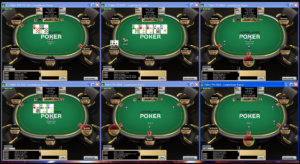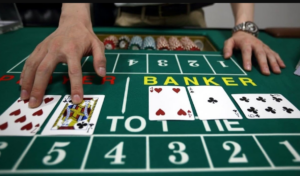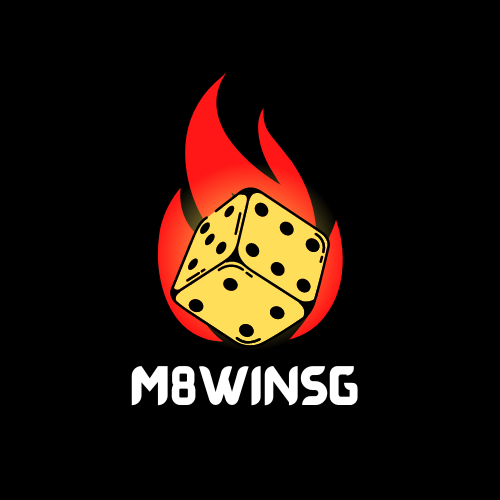Online Poker Tournament Strategy: Tips and Tricks for Winning Big
Online Poker Tournament Strategy: Tips and Tricks for Winning Big
Online poker tournaments have become increasingly popular in recent years, with players from all over the world competing for big prizes from the comfort of their own homes. However, winning an online poker tournament requires more than just luck. It requires a solid strategy and a deep understanding of the game.
To succeed in online poker tournaments, players must first be prepared for the long haul. These tournaments can last for hours, even days, so it is important to have the stamina to stick it out. In addition, players must be able to adjust their online poker strategy as the tournament progresses, taking into account factors such as their chip stack, position at the table, and the behavior of their opponents.

Understanding Online Poker Tournaments
Online poker tournaments have become increasingly popular over the years, with players from all over the world competing for large prize pools. In this section, we will discuss the basics of online poker tournaments, including buy-ins, prize pools, MTT vs. SNG, and the four main poker tournament formats.
Buy-ins and Prize Pools
When entering an online poker tournament, players must pay a buy-in fee, which is used to create the tournament’s prize pool. The buy-in fee can vary greatly, from a few dollars to thousands of dollars, depending on the tournament’s size and prestige.
The prize pool is then distributed among the top finishers, with the winner usually receiving the largest portion. It is important to note that some online poker tournaments may have a guaranteed prize pool, meaning that the total prize pool is guaranteed to be a certain amount, regardless of the number of entries.
MTT vs. SNG
Online poker tournaments can be divided into two main categories: Multi-Table Tournaments (MTT) and Sit-and-Go (SNG) tournaments.
MTT tournaments are typically larger and have more players, with the tournament taking place over several hours or even days. SNG tournaments, on the other hand, are smaller and typically only last a few hours, with a set number of players.
4 Poker Tournament Formats
There are four main poker tournament formats, each with its own unique rules and gameplay:
- Freezeout Tournaments: Players are eliminated when they run out of chips, and cannot buy back in.
- Rebuy Tournaments: Players can buy back in if they run out of chips within a certain time frame.
- Satellite Tournaments: Players compete for a chance to win a seat in a larger, more prestigious tournament.
- Shootout Tournaments: Players compete in a series of single-table tournaments, with the winner of each table moving on to the next round.
In conclusion, understanding the basics of online poker tournaments is crucial for any player looking to compete at a high level. By familiarizing yourself with buy-ins, prize pools, MTT vs. SNG, and the four main poker tournament formats, you can increase your chances of success and potentially win big.
Basic Tips for Online Poker Tournament Success
Playing Recreational and Weak Players
When playing online poker tournaments, it is important to identify recreational players and weak players. These players are more likely to make mistakes and give away chips. Look for players who play too many hands, make large bets with weak hands, or call too often. Try to exploit their weaknesses by playing more aggressively and bluffing more often.
Conservative Play
Conservative play is another important strategy for online poker tournaments. This means playing tight and avoiding risky plays. Only play strong hands and avoid marginal hands. Don’t call large bets with weak hands or go all-in unless you have a strong hand. This will help you avoid losing chips unnecessarily.
Small Stakes and Beginners
If you are a beginner or playing in a small stakes tournament, focus on playing tight and conservative. Don’t try to bluff too often or make risky plays. Instead, wait for strong hands and play them aggressively. This will help you avoid losing chips and give you a better chance of making it to the later stages of the tournament.
Playing Suited Connectors
Suited connectors are hands like 8-9 suited or 10-J suited. These hands can be very powerful in multi-way pots, where you have a chance to make a strong hand like a flush or straight. However, it is important to only play these hands in the right situations. Don’t play them from early position or against strong players. Instead, look for opportunities to play them against weaker players or in multi-way pots.
Multi-way Pots
Multi-way pots are situations where three or more players are involved in a hand. These pots can be very profitable if played correctly. Look for opportunities to play suited connectors or other strong hands in these situations. However, be careful not to overplay your hand or get involved in a big pot with a weak hand.
By following these basic tips, you can improve your chances of success in online poker tournaments. Remember to play tight and conservative, identify weak players, and take advantage of multi-way pots and suited connectors when the opportunity arises.
Developing a Winning Poker Tournament Strategy

When it comes to online poker tournaments, having a solid strategy is crucial for success. A winning poker tournament strategy involves making the right decisions at every stage of the game. Here are some key sub-sections to consider when developing your effective poker tournament strategy:
Pre-flop Strategy
Pre-flop strategy is all about deciding which hands to play and how to play them before the flop. It’s important to have a solid understanding of hand ranges and position. A good pre-flop strategy involves opening with a wide range of hands in late position and tightening up in early position. It’s also important to consider the stack sizes of your opponents and adjust your opening range accordingly.
Post-flop Strategy
Once the flop comes, it’s time to adjust your strategy based on the board texture and your opponents’ actions. A good post-flop strategy involves being able to read your opponents’ hand ranges and adjust your betting accordingly. It’s important to be aggressive with strong hands and to be able to fold weaker hands when facing aggression.
Bet Sizing and Pot Odds
Bet sizing and pot odds are crucial components of a winning poker tournament tournament poker strategy too. It’s important to make bets that are sized appropriately for the pot and the strength of your hand. Understanding pot odds and being able to calculate them quickly is also important for making informed decisions.
All-In Strategy
Knowing when to go all-in is an important part of a winning poker tournament strategy. It’s important to consider your stack size, your opponents’ stack sizes, and the current stage of the tournament when deciding whether to go all-in. Going all-in with a strong hand can help you accumulate chips, but it’s important to avoid going all-in with marginal hands.
Bubble Play
Bubble play refers to the stage of the tournament where players are close to making the money. A good bubble strategy involves being tight and aggressive. It’s important to avoid making big mistakes that could cost you your tournament life. At the same time, it’s important to look for opportunities to accumulate chips and put pressure on your opponents.
Late Stage Strategy
In the late stages of a poker tournament, it’s important to be aggressive and look for opportunities to accumulate chips. It’s also important to be aware of your opponents’ stack sizes and adjust your strategy accordingly. A good late stage poker strategy also involves being able to read your opponents’ hand ranges and make informed decisions based on the information available.
In conclusion, developing a winning poker tournament strategy involves making the right decisions at every stage of the game. By considering pre-flop strategy, post-flop strategy, bet sizing and pot odds, all-in strategy, bubble play, and late stage strategy, you can increase your chances of success in online poker tournaments.
16 Professional Tips for Winning Big in Poker Tournament While Playing Small Stakes

If you want to win big in online poker tournaments while playing small stakes, you need to develop a solid strategy. Here are 16 professional poker training tips to help you succeed:
Be Prepared for a Long Session
Most online poker tournaments take several hours to complete, so you need to be prepared for a long session. Make sure you have enough time and energy to play your best game.
Be Prepared For Some Crazy Swings
Poker tournaments can be very volatile, with big swings in chip stacks. Don’t get discouraged if you lose a big pot early on, and don’t get too excited if you win a big pot. Stay focused and keep playing your best game.
Prepare to Lay Down Some Big Hands
Sometimes you will have to lay down a big hand if you think your a weak player or opponent has a better one. Don’t get attached to your cards and be willing to fold when necessary.
“Tight is right”…but only to an extent
Playing tight can be a good strategy in the early stages of a tournament, but you need to be willing to loosen up as the blinds increase. Don’t be afraid to make some aggressive plays when the time is right.
Don’t Worry About Playing a ‘Balanced Style’
Playing a balanced style is not as important in small stakes tournaments as it is in high stakes games. Focus on playing your best game and making the most of your opportunities.
Consider the potential of your hand
When you have a hand, think about its potential and how it might develop on future streets. This will help you make better decisions and maximize your winnings.
Protect your stack
Your chip stack is your most valuable asset in a poker tournament, so you need to protect it. Don’t take unnecessary risks and be willing to fold when necessary.
Consider the Future Streets
When you make a decision, think about how it will affect your play on future streets. This will help you make better decisions and avoid costly mistakes.
Ride out the “danger zone.”
The early stage middle stages of a tournament can be the most dangerous, so be patient and wait for good opportunities. Don’t take unnecessary risks and be willing to fold when necessary.
Understand your own position
Your position at the table is an important factor in your decision-making process. Consider your position when making decisions and adjust your play accordingly.
Use Money and Final Table Bubble to Your Advantage
The money bubble and final table bubble are important milestones in a tournament. Use them to your advantage by playing aggressively and putting pressure on your opponents.
Learn about ICM- “Independent Chip Model”
ICM is an important concept in tournament poker, and understanding it can help you make better decisions. Learn about ICM and how it affects your play.
Defend Your Big Blind A Lot
Your big blind is a valuable position, and you should defend it aggressively. Don’t let your opponents steal your big stack of blinds without a fight.
Avoid making loose calls
Making loose calls can be costly in a tournament. Don’t call just because you have already invested some chips in the pot. Make sure you have a good reason to call.
Keep it Simple and Value Bet Your Hands to the Max
In small stakes tournaments, keeping it simple is often the best strategy. Value bet your hands to the max and make the most of your opportunities.
Play the Right Tournaments
Choosing the right tournaments to play is an important part of your strategy. Look for tournaments with a good structure and a low buy-in, and avoid tournaments with too many players or a bad structure.
By following these professional tips, you can improve your chances of winning big in online poker tournaments while playing small stakes. Remember to stay focused, be patient, and make the most of your opportunities.
Poker Tournament Strategy Checklist
When it comes to online poker tournaments, having a solid strategy is crucial to increasing your chances of winning. Here is a checklist of some important poker strategies, that can help you become a better poker tournament player:
- Starting Hands: One of the most important aspects of any poker game is starting hands. In online poker tournaments, it is essential to have a solid understanding of what hands to play and what hands to fold. A good starting hand range can help you make better decisions throughout the tournament.
- Position: Position is another crucial factor in online poker tournaments. Being in late position can give you an advantage over your opponents, as you get to act after them. This allows you to make more informed decisions based on the actions of your opponents.
- Stack Size Management: Managing your stack size is important in online poker tournaments. Knowing when to be aggressive and when to play conservatively can help you avoid losing your stack too quickly.
- Blind Stealing: Blind stealing is an effective strategy in online poker tournaments. This involves raising pre-flop with the intention of stealing the blinds from your opponents. However, it is important to be aware of your opponents’ stack sizes and tendencies before attempting to steal the blinds.
- Bubble Play: Bubble play is the period just before the money payouts begin in a poker tournament. It is important to adjust your strategy during this period, as players tend to play more conservatively to avoid getting knocked out before the payouts begin.
- Bankroll Management: Bankroll management is crucial in online poker tournaments. It is important to have a clear understanding of how much money you can afford to lose before entering a tournament. This can help you avoid making poor decisions due to emotional reactions to losses.
By following this checklist of strategies, you can increase your chances of success in online poker tournaments. Remember to always stay focused, be patient, and make informed decisions based on the information available to you.
Notable Online Poker Tournaments and Players
Daniel Negreanu
Daniel Negreanu is a professional poker player online who has won six World Series of Poker (WSOP) bracelets and two World Poker Tour (WPT) championship titles. He is known for his conservative playing style during the early stages of a tournament, which has helped him survive and make deep runs in many events. Negreanu’s poker tournament strategy advice emphasizes the importance of position, hand reading, and understanding your opponents’ tendencies.
In online poker tournaments, Negreanu is a regular player on PokerStars, where he has won multiple tournaments and cashed in for over $4 million in winnings. He is also known for his instructional videos and blogs, where he shares his insights and tips on how to improve your poker game.
Fedor Holz
Fedor Holz is a German professional poker player who has won over $32 million in live and online tournaments. He is known for his aggressive playing style and his ability to read his opponents’ hands. Holz’s tournament strategy emphasizes the importance of playing a wide range of hands and exploiting your opponents’ weaknesses.
In online poker tournaments, Holz is a regular player on partypoker, where he has won multiple tournaments and cashed in for over $6 million in winnings. He is also known for his coaching and mentorship programs, where he helps aspiring poker players improve their game.
World Series of Poker
The World Series of Poker (WSOP) is the largest and most prestigious poker tournament series in the world. It takes place annually in Las Vegas and attracts thousands of players from around the world. The WSOP features over 80 events, including the Main Event, which has a buy-in of $10,000 and a prize pool of over $10 million.
In recent years, the WSOP has also expanded its online presence, with the introduction of the WSOP Online series. This series features over 30 events, including the Main Event, which has a buy-in of $5,000 and a prize pool of over $3 million. The WSOP Online series has attracted some of the biggest names in poker, including Daniel Negreanu and Fedor Holz.
Overall, online poker tournaments offer players the opportunity to compete against some of the best players in the world and win life-changing amounts of money. By studying the strategies of top players like Daniel Negreanu and Fedor Holz, and keeping up with the latest tournament series like the WSOP, players can improve their skills and increase their chances of success.

Conclusion
In conclusion, winning an online poker tournament requires a combination of skill, strategy, and luck. Players must be prepared to adapt to changing situations, adjust their play style, and make informed decisions based on the information available to them.
Throughout the tournament, players should focus on building their stack, avoiding unnecessary risks, and taking advantage of opportunities to accumulate chips. This can be achieved by playing tight and aggressive, stealing blinds and antes, and making well-timed bluffs.
As the tournament progresses and the blinds increase, players should adjust their strategy accordingly. They should be prepared to play more hands, take calculated risks, and be willing to make big calls or lay down big hands.
It is important to note that no single strategy can guarantee success in online poker tournaments. The game is constantly evolving, and players must be able to adapt and learn from their mistakes. By following the tips and strategies outlined in this article, players can increase their chances of winning and become more successful in online poker tournaments.
Frequently Asked Questions
How To Bluff Like The Pros in Poker tournaments?
Bluffing is an essential part of poker, but it is not easy to master. To bluff like the pros in poker tournaments, one needs to be aware of the table dynamics, the opponent’s playing style, and the cards on the board. It is also important to know when to keep bluffing poker, and when to fold. In general, bluffing in poker tournaments is more effective in the early stages when the blinds are low and the stacks are deep. As the tournament progresses and the blinds increase, bluffing becomes riskier.
How do poker tournaments work?
Poker tournaments are competitions where players compete against each other until only one player remains. The objective of a poker tournament is to win chips from other players and increase your stack. The tournament ends when one player has all the chips. Tournaments can have different structures, including freezeouts, rebuys, and satellites. The most common format is the freezeout, where players are eliminated when they lose all their chips.
Do poker players play with their own money in tournaments?
In most cases, poker players play with their own money in tournaments. However, some players might be sponsored by a poker site or a company, which means they receive a buy-in for the tournament to win online poker real money. In this case, the player might have to share a percentage of their winnings with the poker sites or the sponsor. Also, some tournaments offer freerolls, which are tournaments with no entry fee, but the prize pool is usually smaller.
Are cash games harder than tournaments?
Cash games and tournaments require different skills, and it is difficult to say which one is harder. Cash games require a solid understanding of the cash game, and the ability to read opponents, while tournaments require a mix of skill, luck, and endurance. In cash games, players can leave the table at any time, while in tournaments, players need to stay focused for hours or even days.
What is a good win-rate in poker tournaments?
A good win-rate in poker tournaments depends on the buy-in level, the number of players, and the whole poker tournament tips and structure. In general, a win-rate of 15-20% is considered good for low buy-in tournaments, while a win-rate of 10% is considered good for high buy-in tournaments. However, it is important to remember that win-rate is not the only measure of success in poker tournaments.
How should I measure success in poker tournaments?
Success in poker tournaments can be measured in different ways, depending on the player’s goals. Some players might measure success by the amount of money they win, while others might measure success by the number of final tables they reach. It is important to set realistic goals and to focus on improving your game instead of just chasing results.
Relevant news
WSOP Online Poker: Everything You Need to Know
WSOP Online Poker: Everything You Need to Know WSOP Online Poker has gained immense popularity…
Scrum Poker Online: A Comprehensive Guide for Agile Teams
Scrum Poker Online: A Comprehensive Guide for Agile Teams Scrum poker online is a popular…
Real Poker Online Australia: The Top Sites to Play and Win
Real Poker Online Australia: The Top Sites to Play and Win Online casino has become…
Poker Online with Bots: Advantages and Disadvantages
Poker Online with Bots: Advantages and Disadvantages Online poker has become increasingly popular in recent…
Poker Online Bonus Cashback: How to Maximize Your Winnings
Poker Online Bonus Cashback: How to Maximize Your Winnings Online poker bonuses and cashback programs…
Poker Online AI: The Future of Online Poker?
Poker Online AI: The Future of Online Poker? Online poker AI has become increasingly popular…

